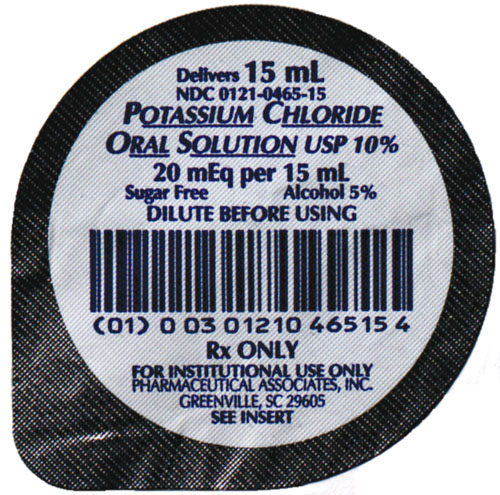
Potassium Chloride

Potassium Chloride
Potassium chloride is a mineral that is naturally occuring in many foods and necessary for proper muscle and cardiac function as well as maintaining the proper fluid balance and ph of the body's cells.
Potassium chloride is given to patients who have a shortage of potassium, because regular potassium by itself (not in potassium chloride form) is highly reactive, and can explode when it comes in contact with water, so people who need to take extra potassium cannot take pure potassium; they must take it in some kind of mixture in which it is chemically bonded to another substance but in which form it is still possible for the body to safely break it down.
Patients may have a shortage of potassium for several reasons; it is not very common, but it is possible for someone to have a shortage of potassium because of poor diet, and certain medications can actually trigger a potassium shortage in the body. Excessive fluid loss flushes potassium out of the body, so dehydration, often caused by diarrea and/or vomiting is a major cause of potassium shortage.
Potassium chloride can be given orally in less serious situations or by IV in more serious situtations of potassium shortage. When given by IV, potassium chloride cannot be administered via IV push/bolus (or via IM or s.q.), because it would result in the patient receiving too much potassium too quickly; it must be diluted and infused over a certain period of time.
Potassium chloride is measured in milliequivalents, but these units are not the same volume as the milliequivalents used to measure other drugs such as calcium gluconate or sodium bicarbonate. The standard concentration for IV dosage is 40 mEq dissolved in 1 L of diluent, although other concentrations may be used depending upon whether the IV is administered via a central vs. a peripheral line.
The correct dosing of potassium chloride is critical; studies have shown that it is in fact the drug most frequently responsible for accidental death of patients in acute care facilities. Oral administration is much safer than IV administration because the opportunity for dramatic overdose is much smaller, so if it is possible to treat a patient's potassium shortage orally, that is always preferred to IV treatment. Whenever a patient is receiving potassium chloride, their potassium levels should be checked regularly to moniter possible overdose.
If too little potassium chloride is given, the patient may remain in a state of potassium shortage and potentially severe heart arrhythmias (irregular heartbeat), muscle weakness, and a shortage of sodium, which can lead to coma and/or seizure can occur.